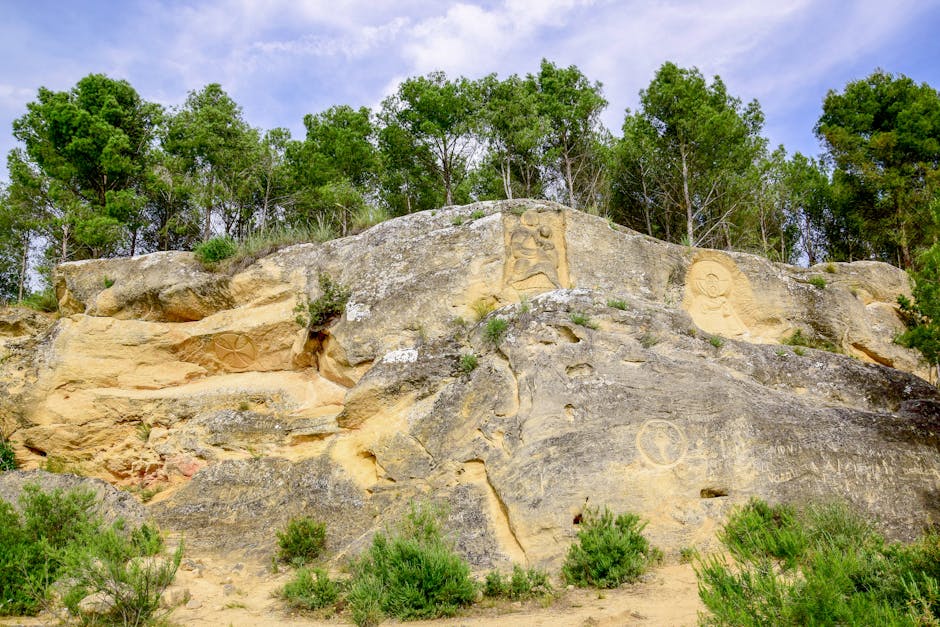Archaeology, the study of humanity’s past through material remains, faces a complex and ever-evolving set of obstacles. These challenges are not simply logistical; they delve into ethical considerations, funding pressures, and the very nature of interpreting the past in a rapidly changing world. Addressing these hurdles is crucial to ensure the preservation and understanding of our shared heritage for future generations.
A foremost concern for archaeologists is the escalating threat of looting and illicit trade in antiquities. This black market thrives on the allure of valuable artifacts, often from sites of significant historical and cultural value. Organized criminal networks exploit vulnerabilities in border controls and lack of proper legislation to facilitate the illegal extraction, trafficking, and sale of archaeological finds. Protecting sites from these destructive practices requires robust international collaborations, stringent laws, and proactive community engagement.
Furthermore, the relentless march of development and urbanization continues to pose a major threat to archaeological sites. Infrastructure projects, agricultural expansions, and urban sprawl inevitably lead to the destruction or disturbance of buried remains. Archaeological surveys and excavations often struggle to keep pace with these rapid transformations, potentially losing irreplaceable insights into the past before they can be properly documented and studied. Integrating archaeology into urban planning processes is vital. This involves not only finding ways to identify and protect existing sites but also incorporating archaeological strategies into the development process itself.
The pressure to produce concrete and demonstrably impactful research within stringent funding frameworks significantly affects archaeological endeavors. Academic funding sources, often competitive and constrained, frequently prioritize projects that appear immediately practical and economically viable. This can lead to a neglect of long-term, large-scale excavations and research projects that might provide a broader understanding of cultural processes over extended periods. A deeper awareness of the importance of exploratory research and the long-term value of archaeological data is crucial for fostering sustainable funding streams. Supporting institutions and encouraging interdisciplinary collaboration could provide solutions to these financial limitations.
Maintaining site integrity and managing the considerable logistical demands of fieldwork are also pervasive challenges. Complex excavation techniques, preservation procedures, and meticulous documentation are often intricate and costly. Protecting delicate artifacts from deterioration requires specialized equipment and highly trained personnel. These resource demands can be particularly burdensome for projects conducted in remote or challenging geographical locations, adding further complexity to the archaeological process. Improving training for field personnel and developing innovative preservation methods are essential strategies for optimizing these often-complex procedures.
Another hurdle lies in the ethical considerations surrounding archaeological practice. The concept of cultural heritage and who owns the narrative of the past are becoming increasingly complex. Interpreting past societies through a lens informed by present-day biases is essential to avoid perpetuating stereotypes and misrepresentations. Ensuring the involvement of local communities in research and advocating for their rights to participate in the interpretation and display of their cultural heritage is paramount. Archaeological research should prioritize ethical considerations, focusing on equitable participation, collaborative approaches, and respect for local communities.
Interpreting complex datasets and ensuring their accessibility is also a major undertaking. Modern archaeologists are faced with a wealth of data, ranging from traditional excavation findings to satellite imagery and advanced scientific analyses. Developing sophisticated methods to integrate and analyze this diverse range of data, while maintaining accuracy and transparency, is critical. Making research results accessible to a broad public requires innovative strategies for dissemination. Using interactive platforms, visualizations, and public engagement initiatives will aid in translating often intricate research into meaningful narratives that connect with a global audience.
Technological advances, whilst offering significant opportunities, also present specific challenges. Advanced methods, like remote sensing and digital imaging, are revolutionizing how we discover and study the past, but they require substantial investment in training and maintenance. The ethical implications of using new technologies, particularly when dealing with sensitive cultural heritage, must be rigorously assessed. Careful consideration of the social and ethical ramifications of deploying these methods will ensure their responsible and sustainable integration into archaeological practice.
Ultimately, confronting these difficulties requires a multifaceted approach, encompassing international cooperation, financial support, ethical guidelines, and robust technological integration. Archaeologists should actively engage with communities whose history they seek to understand, embracing participatory approaches. By prioritizing ethical considerations, promoting public engagement, and developing innovative research methods, the discipline can address these challenges and continue to provide invaluable insights into the human experience and shared heritage. This collaborative and nuanced approach will allow archaeology to navigate the ever-shifting landscape of the past with greater effectiveness and impact.






